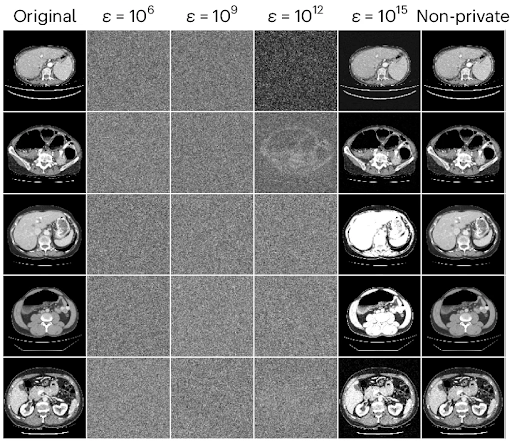In February, Providence, a not-for-profit health system serving the Western U.S., and Compassus, a national provider of integrated home-based care services, completed the first phase of a joint venture (JV) focused on home health, hospice and community-based palliative care. However, Providence employees expressed concerns regarding cost-cutting measures and staffing issues.
Specifically, critics of the JV voiced concerns that the deal would result in cost-cutting measures, increased staff workloads and reduced patient services.
Compassus senior vice president and chief marketing and communications officer, Kathleen Winn, told Home Health Care News that partnerships like Compassus’s JV with Providence greatly benefit hospitals and health systems by allowing patients to move from an inpatient environment to home-based care and avoiding readmissions through careful monitoring.
She also said the company is prioritizing its workforce through targeted listening strategies, assessing key touchpoints during the first year of employment, improving benefits offerings, and implementing mentorship and preceptorship programs.
“We’ve already witnessed impressive results from these efforts and are applying the same strategies as we welcome our Providence caregivers,” Winn said.
Based in Brentwood, Tennessee, Compassus provides a wide range of home-based care services, including home health care, home infusion, palliative care, hospice care and home-based high-acuity care. It has more than 270 locations across 30 states.
The new entity, Providence at Home with Compassus, faced considerable contention in Oregon. The Oregon Health Care Market Oversight program delayed the finalization of the JV to conduct a review to ensure the transaction would not adversely impact citizens or communities.
Some pushback focused on concerns around Compassus’ priorities. Kirsten Halson, an occupational therapist employed by Providence, expressed concern that Compassus may cut programs that are seen as unprofitable, which would harm patients and caregivers.
“For-profit home health and hospice agencies often employ fewer registered nurses, social workers and full-time clinicians compared to non-profit agencies,” Halson wrote to the Oregon Health Authority. “This leads to each staff member seeing more patients, which limits the time each visit can take. Such practices negatively impact the quality of care that patients report experiencing.”
She further explained that Compassus is a for-profit, private-equity (PE)-owned entity that “aims to generate capital for its shareholders.” She also expressed concern about the viability of a career in health care because of “constraints on my ability to provide the care that my patients need.”
Compassus is owned equally by PE firm Towerbrook Capital Partners and health system Ascension Health. PE ownership of health care entities has become a matter of national contention, with some studies showing that PE acquisitions of hospitals are associated with an increase in hospital-acquired conditions, including falls and bloodstream infections.
PE firms invested approximately $505 billion in health care acquisitions between 2018 and 2023, according to Bain & Company’s health care PE market report. However, these firms have occasionally sold the land and buildings of acquired hospitals, returning proceeds to investors while burdening the health system with rent or mortgage payments for facilities they once owned, as noted in research published by the Institute for New Economic Thinking.
As of March 20, the Oregon Health Authority (OHA) accepted a complete notice of material change describing plans for Compassus to acquire 50% of the membership interests in Providence Health & Services’ home health and hospice assets.
“Providence and Compassus state the transaction would allow them to meet the demand for home-based care better,” OHA said in a statement. “Compassus is not expecting any changes to staffing, services or locations of home health or hospice agencies in Oregon.”
OHA is currently reviewing the deal to analyze its potential impact on the community.
Compassus’ integration plan
Compassus leaders, including Winn, met with caregivers in Washington, D.C., in early March to allow newcomers to the organization to ask questions and “better connect” with Compassus culture. Winn noted that the reception was warm, and leaders felt positive about the events.
“We are fortunate to have experience bringing on new team members through our previous joint ventures with OhioHealth, Bon Secours Mercy Health and Ascension,” Winn said. “Our process begins as soon as we can communicate directly with our new caregivers, sharing as much information as possible about who we are, our mission and our benefits. Effective communication is crucial during onboarding and throughout the first year, which is vital for employee retention.”
Winn further noted that with Compassus, health system partners gain access to an organization specifically designed to provide home-based care. She highlighted the advantages to a JV, including smoother transitions for patients moving from hospital to home, access to comprehensive disease-specific care models and an extensive network of home-based services, advanced analytic capabilities to “ensure appropriate care at the right time” and value-based services including telehealth, remote patient monitoring and centralized triage.
Patients who are ready for hospital discharge often face delays in accessing post-acute care, including home health, according to a report from the American Hospital Association. This can lead to poorer health outcomes and increase the total cost of care.
“Our value is in the compassion and expertise of our teams, which act as an extension of patients’ existing care teams,” Winn said. “Everyone who interacts with us should experience our individualized Care for who I am philosophy. This extends from our caregivers’ services to patients and families to how we interact with our partners and one another.”
Compassus continues to measure success by evaluating partnerships based on the ability to deliver integrated, patient-centered care in the environments where patients feel the most comfortable. She noted that Compassus leverages its resources and clinical capabilities to support its partners in providing high-quality care more efficiently.
Providence and Compassus have stated they are committed to ensuring the quality and continuity of care for patients and their families. The organizations say they will continue to work collaboratively to support the home health, hospital, palliative and private-duty caregivers transferring employment to the JV. Compassus has also promised continuity in local services and comparable caregiver benefits and pay practices.
“Serving people in their home, many of whom are at their most vulnerable, is sacred work and a deeply held part of the Providence mission. As our communities age, we have been thoughtfully evaluating how to best meet the growing need for these services,” Terri Warren, Providence’s chief of community services, said in a statement. “Compassus shares our commitment to these services, enabling us to expand access to care in the comfort of home.”
The post Compassus, Providence JV Gains Ground Despite Persistent Scrutiny appeared first on Home Health Care News.











